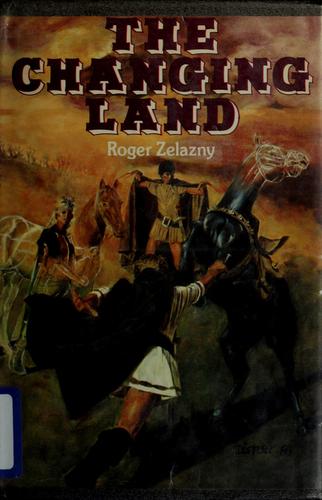jonn reviewed The changing land by Roger Zelazny
Humorous, making fun of sexist men. The most fun bottle episode book I've ever read.
5 stars
This book is still written in a style of American epic, which is quite an experience to read. As opposed to book one, which was an assembly of Dilvish short stories, with the Ice Tower being the crescendo of the storyline, this one is on continuous bottle episode. Could be made into a theatre production!
Aspects of this book intertwine with some aspects of the Chronicles of Amber, which is quite an interesting insight in how Zelazny approached worldbuilding and what was interesting for him to explore.
Some plot lines were leaning too much on plot induced stupidity of characters, which makes me deduct a point, but one of the main plot twists compensate for it, bringin the total rating to 4.5/5 for me, with a caveat that I have no desire to re-read this.
The big idea I got out of this book is that not much force is …
This book is still written in a style of American epic, which is quite an experience to read. As opposed to book one, which was an assembly of Dilvish short stories, with the Ice Tower being the crescendo of the storyline, this one is on continuous bottle episode. Could be made into a theatre production!
Aspects of this book intertwine with some aspects of the Chronicles of Amber, which is quite an interesting insight in how Zelazny approached worldbuilding and what was interesting for him to explore.
Some plot lines were leaning too much on plot induced stupidity of characters, which makes me deduct a point, but one of the main plot twists compensate for it, bringin the total rating to 4.5/5 for me, with a caveat that I have no desire to re-read this.
The big idea I got out of this book is that not much force is required to perform a great change if the situation is volatile enough.
And, as ususal, a quote to remember the book by. This one will be a long one.
“Have you got something for me?”
“It seems that I do, if my lady has just kicked me out of bed to tell you about it. Why do we put up with it?”
“A wise man may reverse the obvious. Then again, maybe not. What is her message?”
“First, to tell you that the one who passed your post under the name of Weleand was lying. I spoke with the real Weleand earlier. He is in a stable in Murcave, keeping company with sick horses. Next, there is a possibility that your Dilvish is the one Jelerak turned to a stone at about the time ours vanished in the old records. That one was supposed to have been restored recently and distinguished himself in a border clash at Portaroy by raising the legions of Shoredan to succor that city. There is even a song going around. She sang it before she kicked me out of bed. It mentions a metal horse named Black, and it hints of a continuing feud with the sorcerer.”
“I am happy that you listened to her.”
“It was a rousing song—Now, if you will excuse me—”
“Wait. What do you think about this?”
“Oh, she’s probably right. She usually is. Her suspicions, though, are a trifle melodramatic.”
“I’d like them, anyhow.”
Rawk wiped a bit of spittle from the corner of his mouth. “Well, I’m sure it will give you a good laugh. It did me. She thinks Weleand is Jelerak in disguise and that he is trying to break into his own castle, that he is too weak from his recent injuries up North to employ his usual high-powered means.”
“How does she know what happened up North?”
“I talk in my sleep. Anyway, he knows this Dilvish is after him, she says, which is why he said what he did to you—hoping you’d slow his enemy a bit. What can you do with a woman like that?”
“Offer her your job,” Meliash said.

